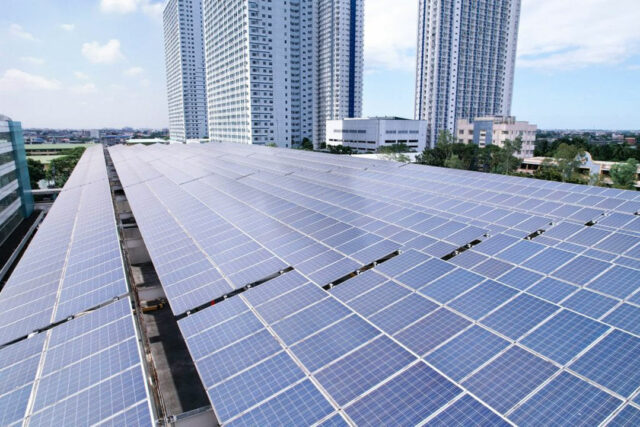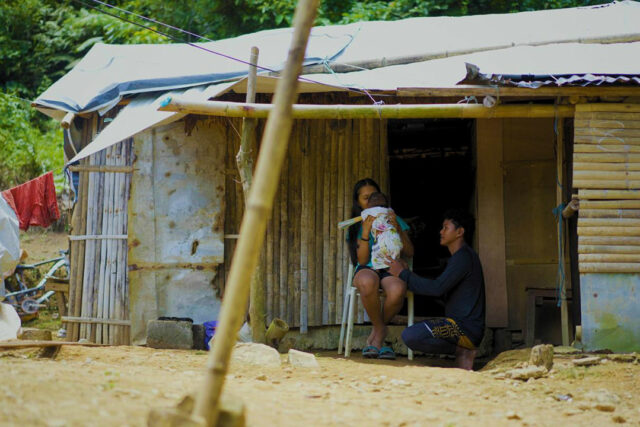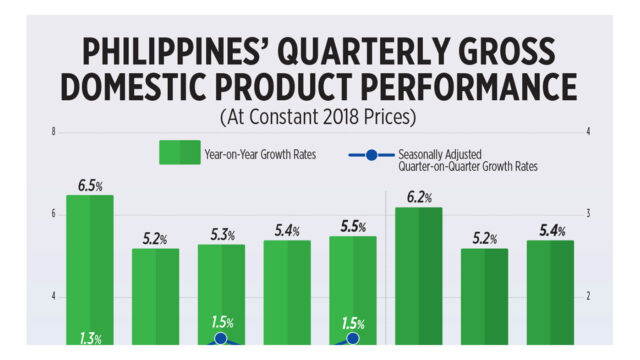Stuff to Do (08/08/25)
Shop at the MaArte bazaar
DAILY until Aug. 10, The Peninsula Manila is once again filled with the vibrancy and ingenuity of Filipino crafts, fashion, and art at its finest as it hosts MaArte at The Pen. Now in its 15th year — with over 160 exhibitors, including 40 first-time participants — MaArte is the signature fundraising event of the Museum Foundation of the Philippines. A portion of proceeds from every purchase goes directly to the Museum Foundation of the Philippines’ programs for the National Museum and the museum community. This year, MaArte introduces a food and beverage category for the first time. Admission is free to the fair, which this year occupies the 5th Floor Guest Rooms, the 2nd Floor Meeting Rooms, The Conservatory and The Upper Lobby at the 2nd floor, the Garcia Villa and Balagtas Function Rooms, and the Rigodon Ballroom.
Look at the stars at Gateway’s Space Week
PHILIPPINE SPACE WEEK 2025 will take place from Aug. 8 to 14, at Quantum Skyview, Gateway Mall 2 in Araneta City, Quezon City. It is organized by the Philippine Space Agency, which invites visitors to explore the world of satellites, rockets, and space data. It features interactive exhibits, games, and activities for the whole family, and other events focusing exclusively for science and space enthusiasts. Admission is free.
Visit a plant bazaar at Capitol Commons
The 2nd edition of Bloom & Brew will be held at the Capitol Commons Park from Aug. 8 to 10. This unique garden and lifestyle fair will bring together 42 plant partners, showcasing a diverse collection of plants, gardening supplies, and eco-friendly finds for plant enthusiasts and green lifestyle advocates. The weekend’s highlights include the Kokedama Workshop — the Japanese art of creating moss ball planters for a stylish indoor green touch — on Aug. 9, 3-5 p.m., and a Permaculture Farming Demonstration and Talk with Sixto Bereber on Aug. 10, 3-5 p.m. There will also be a Tabletop Competition with the theme “Colorful Plants,” where participants showcase vibrant and creative plant arrangements. Participants can join by reaching out to HortiFilipina on Facebook or on Aug. 8 at the Capitol Commons Park. The competition runs from Aug. 8-10 with the awarding ceremony happening on Aug. 10, 8 p.m.
Attend a candlelit tribute show to Filipino music
THE candlelit tribute concert DILAAB will honor the legacy of Filipino songwriter Trina Belamide, featuring live performances of songs from her new book Trilogy: The Songs of Trina Belamide. The recently launched book, collects stories, lead sheets, photos, and memories from her 30 years of songwriting. The concert will be held on Aug. 9 and 10, at 6 and 8:30 p.m. at YSpace at the Yuchengco Museum, RCBC Plaza, Makati City. Tickets are priced at P2,000, with discounted prices for seniors and PWDs at P1,600 and for students at P1,000.
Enjoy the opera at Sopranong Kalbo
A NEW theater company, Teatro Meron, presents Rolando Tinio’s translation of Eugene Ionesco’s Sopranong Kalbo (The Bald Soprano), a classic of the Theater of the Absurd. Directed by Ron Capinding, it will have performances on Aug. 8 to 10 at the Rizal Minitheater of the Ateneo de Manila University in Quezon City. It stars Joel Macabenta, Miren Alvarez-Fabregas, Joseph dela Cruz, Pickles Leonidas, Goldie Soon, and Yam Yuzon. Tickets come in different categories, priced from P700 to P800 and are available at Ticket2Me.
Attend a performance of Portrait of the Artist
ARETÉ ATENEO is producing a Filipino translation of Nick Joaquin’s classic A Portrait of the Artist as Filipino, entitled Quomodo Desolata Es? The translation was written by Jerry Respeto and Guelan Varela-Luarca who is also the director. The play is set in Intramuros just before World War II and follows two sisters as they see the world change around them. It stars Gan Pangilinan, Delphine Buencamino, Omar Uddin, Vino Mabalat, and John Sanchez. There will be performances from Aug. 8 to 17 at the Hyundai Hall, Areté, Ateneo de Manila University in Quezon City. Tickets range in price from P999 to P1,499 and are available via Helixpay.
Shop for Tefal at SM Makati
TEFAL in SM Makati is offering a wide array of exclusive deals and discounts throughout the month of August. Shoppers can enjoy 20% off on kitchen tools, and those who purchase any item from the color collections will receive 30% off. Delibake products are available at 40% off. Customers who purchase any Tefal item will get the chance to play a Pachinko game for prizes. For a minimum spend of P3,500 on Tefal products, shoppers will receive a Delibake loaf pan.
Vote on the new music countdown program Vibe
MQUEST Ventures has launched TV5’s music countdown show, Vibe, where fans have the power to decide which OPM songs top the list. It gathers some of today’s young artists as the “Vibe” jocks: Dylan Menor, Elijah Canlas, Ana Ramsey, Queenay, Paulo Angeles, Kych Minemoto, Ryle Santiago, Joao Constancia, and Maxie Andreison. Its multi-platform voting system uses SMS, website, and Messenger. Radio request voting will also be facilitated via 105.7 TrueFM. The main show airs every Sunday at 6:45 to 7:45 p.m., showcasing the Top 10 Hottest Songs of the week voted by the fans, then brought to life by artists live on the “Vibe” stage. The show officially premieres on Aug. 9, with its pilot countdown episode airing on TV5.
Support a fundraising show
THE Cultural Center of the Philippines (CCP) and BOGT Philippines present fundraising performances of 13th of September on Aug. 10, before the show is brought to Monaco to represent the Philippines at the Mondial du Théâtre. BOGT Philippines has said that the critically acclaimed production has received its third invitation to an international theater festival, this after joining the festivals in Canada (2019) and Germany (2021, 2022). The 18th Mondial du Théâtre in Monaco will run from Aug. 20-27. The fundraising send-off performances (to help cover essential expenses for the delegation) will be on Aug. 10, 3 and 7 p.m., at the Tanghalang Ignacio Gimenez, Cultural Center of the Philippines, Pasay City. The tickets cost P1,000 and P800 and are available on Ticketworld.com. The 13th of September is an adaptation by three-time Palanca awardee Eljay Castro Deldoc from Lanie Robertson’s The Insanity of Mary Girard, about a woman who is committed to an asylum by her husband after she becomes pregnant by another man. It is directed by Riki Benedicto and star Andoy Ranay as Mary Girard, together with Lao Rodriguez and Drew Espenocilla.
Go to the circus at Side Show: The Musical
ONGOING until Aug. 17 at Circuit Makati’s Power Mac Center Spotlight is the Sandbox Collective’s production of Side Show: The Musical, which revolves around the life of conjoined twins and their fellow “freaks” who live in a carnival in 1930s America. The cast features Jon Santos, Tanya Manalang, Molly Langley, and Marvin Ong. Tickets are available through Ticket2me.
Listen to Mark Feist collab with Jay R
ACCLAIMED Filipino-Australian producer Mark Feist is back in the Philippines, having produced two tracks with the Philippines’ R&B King, Jay R. Their first release, “Tunay,” which dropped end of July, delivers a refreshing New Jack Swing-inspired beat paired with an R&B hook. The second one, still under wraps and coming soon, is a duet between Jay R and rising pop newcomer Shanice.
Watch horror-thriller Weapons now in cinemas
THE horror-thriller Weapons, from writer-director Zach Cregger, is now showing in Philippine cinemas. It is set in a town where an entire class of children mysteriously vanishes on the same night at exactly the same time. It stars Josh Brolin, Julia Garner, Alden Ehrenreich, Austin Abrams, Cary Christopher, Benedict Wong, and Amy Madigan. It is in regular and IMAX cinemas nationwide. It has an MTRCB rating of R-18.
Listen to Muri, Shigge EP
FILIPINO indie pop and soul artist Muri and Japanese electronic producer Shigge have released their first joint EP, SETSUNA, on all digital music platforms worldwide. Titled after a Japanese word with Buddhist origins that means “instant,” SETSUNA aims to symbolize the beauty of fleeting yet powerful moments. The cross-cultural collaboration mixes genres like neo-soul, house, and UKG with dance-infused rhythms and drum n’ bass.






















